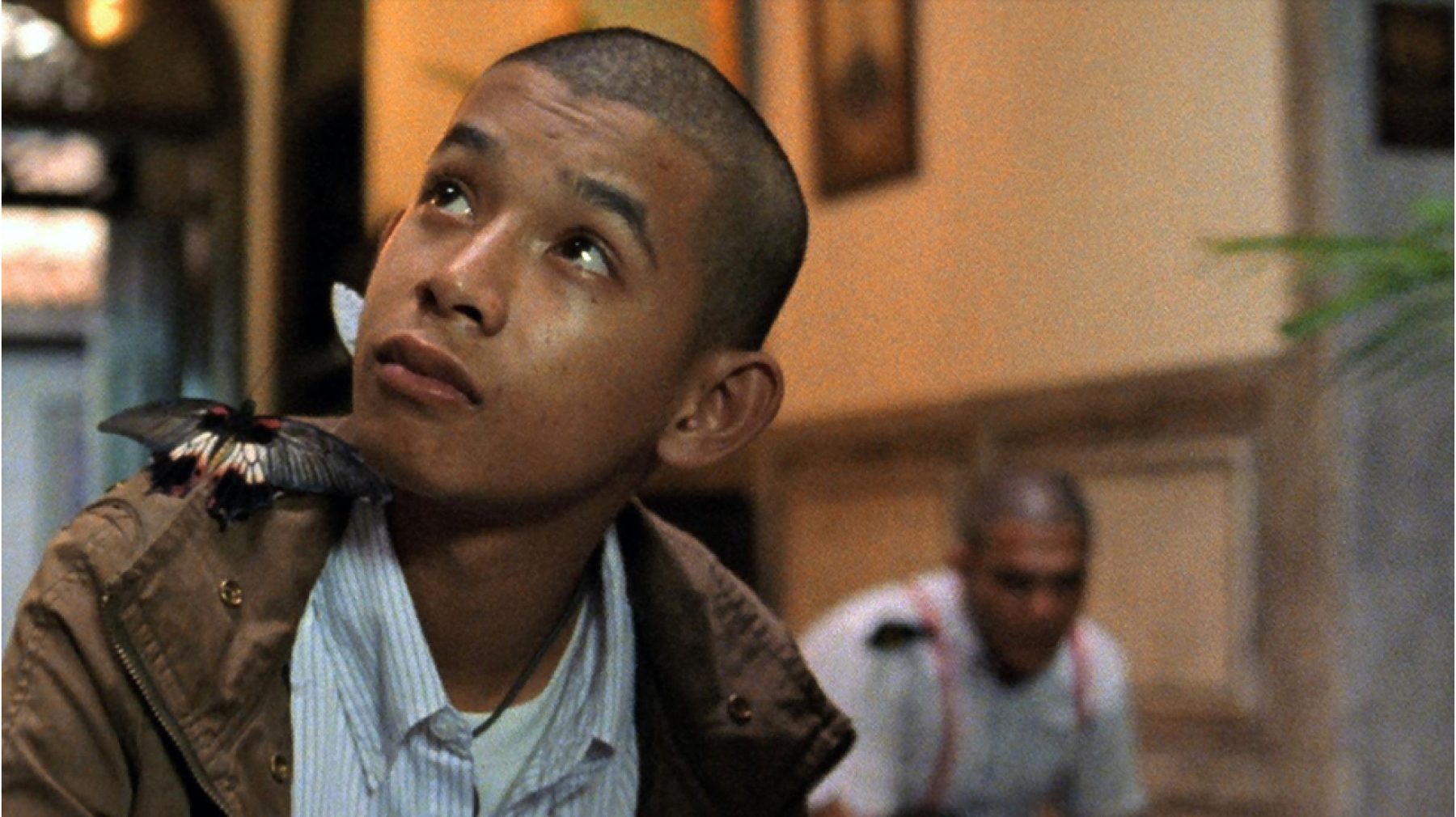This program happened on April 8, 2016.
How to Rule Others: Phil Collins and Sinša Mitrović Selects
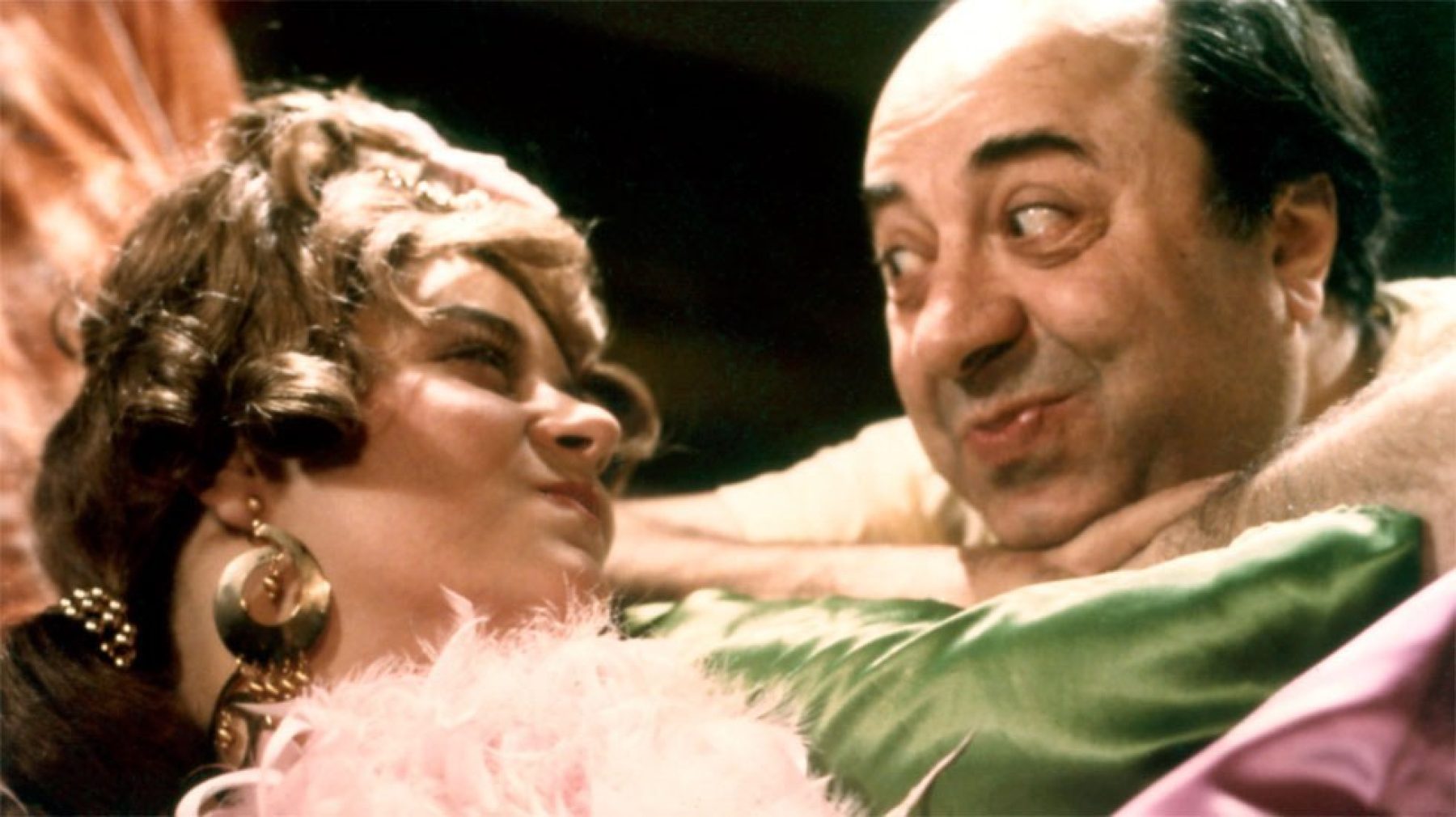
02/05 The Psychic Parrot, directed by Derek Lamb, US 1977, 16mm, color, 20 min.03/05 Television: The Enchanted Mirror, directed by Julene Bair and George Csicsery US 1981, 16mm, color, 28 min.
Drawing on the breadth of the Harvard Film Archive’s collection, two film programs put together by Phil Collins and Siniša Mitrović offer another opportunity to engage with Collins’ varied practice. Collins and Mitrović first met in 1999 in Belgrade, soon after the NATO bombing of Serbia. In the past decade they have closely collaborated on the production and realization of Collins’ projects. In 2010 they organized Auto-Kino!, an extensive exhibition of feature films and artists’ film and video, presented as a drive-in cinema in the center of Berlin. In 2015 the project appeared in a new iteration as Cinema Sayyara! in Ramallah, Palestine, as part of Riwaq Biennale. “How to bring a drive-in to the Carpenter Center without the cars?” asks Collins. “Of course it’s impossible. But we had at our fingertips one of the best film archives in the world, and wanted to connect it to some of our interests in film, politics and popular media—even without cheap beer, greasy popcorn, and the chance to winch down the passenger seat to an almost prone position. You can, after all, pop out to Quincy Street and do that yourself in the interval.”
The first program is loosely related to the Yugoslav Black Wave, a cinema movement from the 60s and 70s that produced some of the most original and daring titles of this period worldwide. Causing controversy at the time of their release, the Black Wave films depicted and critiqued “real existing socialism” from a Marxist perspective, often by examining the shortfall between life as it was lived and its representation through Socialist Realism officially sanctioned by the state. Even though it was made in 1993, after the breakup of former Yugoslavia, Tito Among the Serbs For the Second Time by Želimir Žilnik is as probing in its consideration of the social, emotional and subjective responses to the structures of power as his earlier works.
The Harvard Film Archive holds one of the most complete collections of Vlatko Gilić’s experimental documentary shorts. Power from 1973 plunges the viewer into an engrossing and increasingly ominous act of group hypnosis performed by Slobodan Čirković Roko (who also memorably appears in Dušan Makavejev’s Man Is Not a Bird (1965), another Black Wave classic). Both films enact an understanding of political power as performative and mediated, while rooted in a deeply affective realm.
Did television kill the Internet? The jury is still out not on the apparent decline of television but how its myriad forms and rhythms have successfully migrated to shape our reception of the Internet. Television was the dominant medium of the second half of the twentieth century, and both the political influence of mass-produced entertainment and our intimate relationship with broadcast culture are still being unpacked . The social and aesthetic implications of TV production have been one of Collins’ longstanding interests. The films in this evening’s second half look back at the heyday of the mythological box that used to take pride of place in every living room. They include a parrot announcing the end of the world in 1977 in a live action/animation hybrid from the renowned Visual and Environmental Studies animation department at Harvard University; a 1981 documentary about the impact of television on American society on the cusp of the Reagan era; a 1965 nuclear war docudrama first produced and then swiftly banned by the BBC and the British government; and a lyrical view of the hypnotic pull exercised by the screen’s spectral presence, as today so in 1995. – Phil Collins and Siniša Mitrović
Introduction by Phil Collins and Siniša Mitrović
For admission prices and more information about film programming, visit Harvard Film Archive.
Fri, Apr 8, 2016, 7 pm
Tito Among the Serbs For the Second Time (Tito po drugi put medju Srbima)
Directed by Želimir Žilnik
Yugoslavia 1994, video, color, 45 min. Serbo-Croatian with English subtitles
Power (Moc)
Directed by Vlatko Gilić
Yugoslavia 1973, 16mm, color, 34 min
Fri, Apr 8, 2016, 9 pm
The Psychic Parrot
Directed by Derek Lamb
US 1977, 16mm, color, 20 min
Television: The Enchanted Mirror
Directed by Julene Bair and George Csicsery
US 1981, 16mm, color, 28 min
The War Game
Directed by Peter Watkins
UK 1966, 16mm, b/w, 49 min
Evidence
Directed by Godfrey Reggio
Italy/US 1995, 35mm, color, 8 min
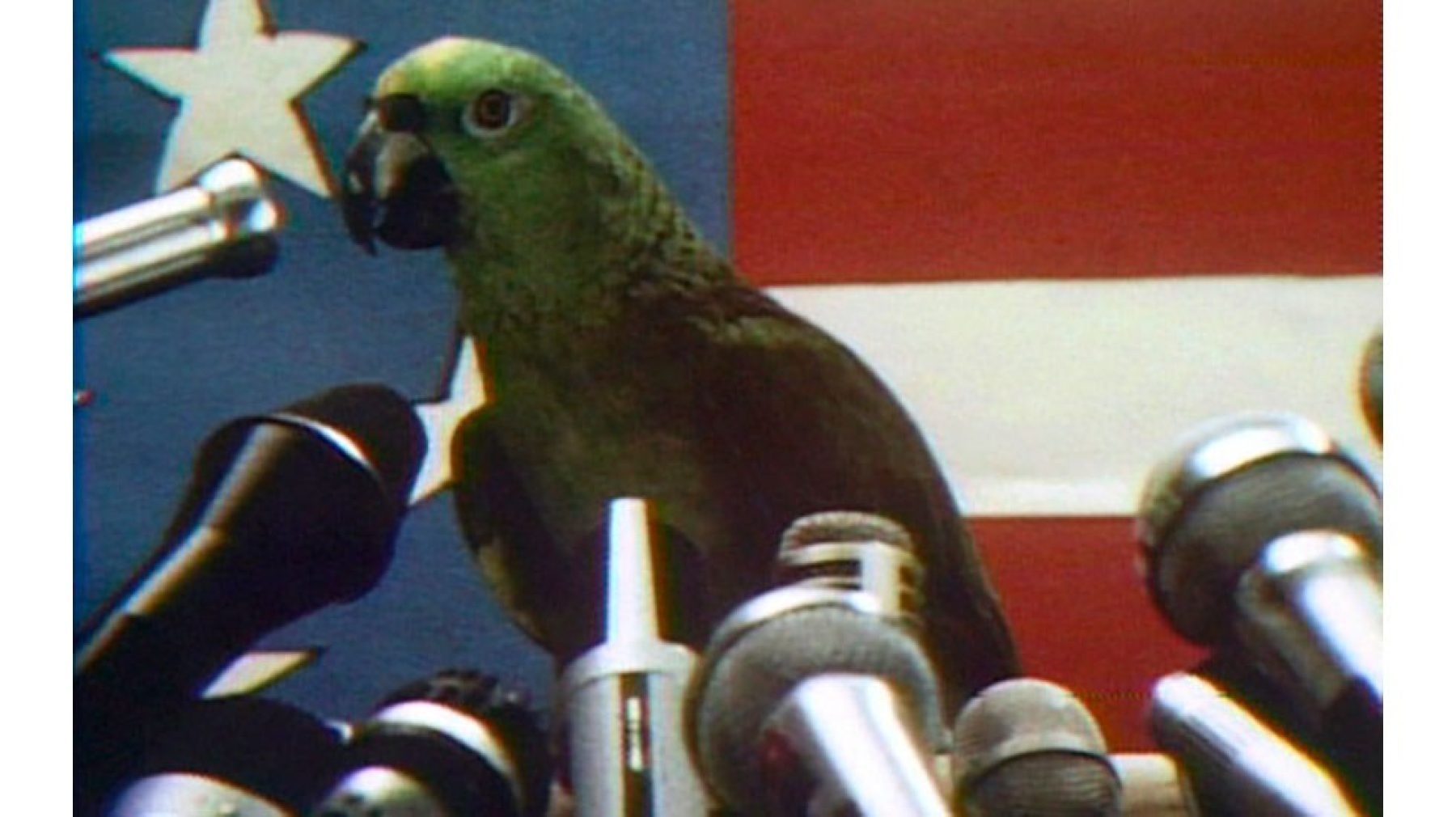
The Psychic Parrot, directed by Derek Lamb, US 1977, 16mm, color, 20 min.
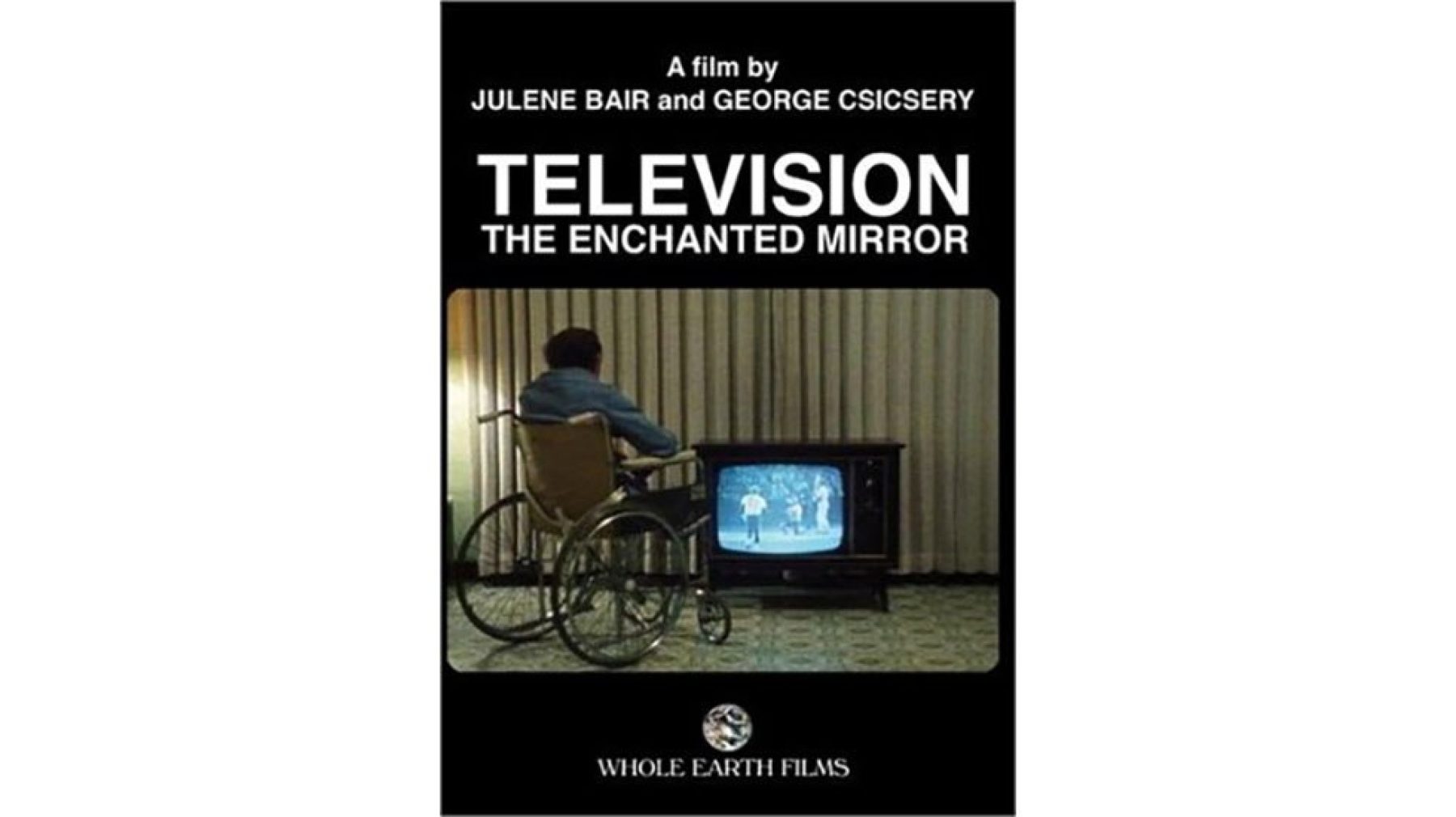
Television: The Enchanted Mirror, directed by Julene Bair and George Csicsery US 1981, 16mm, color, 28 min.
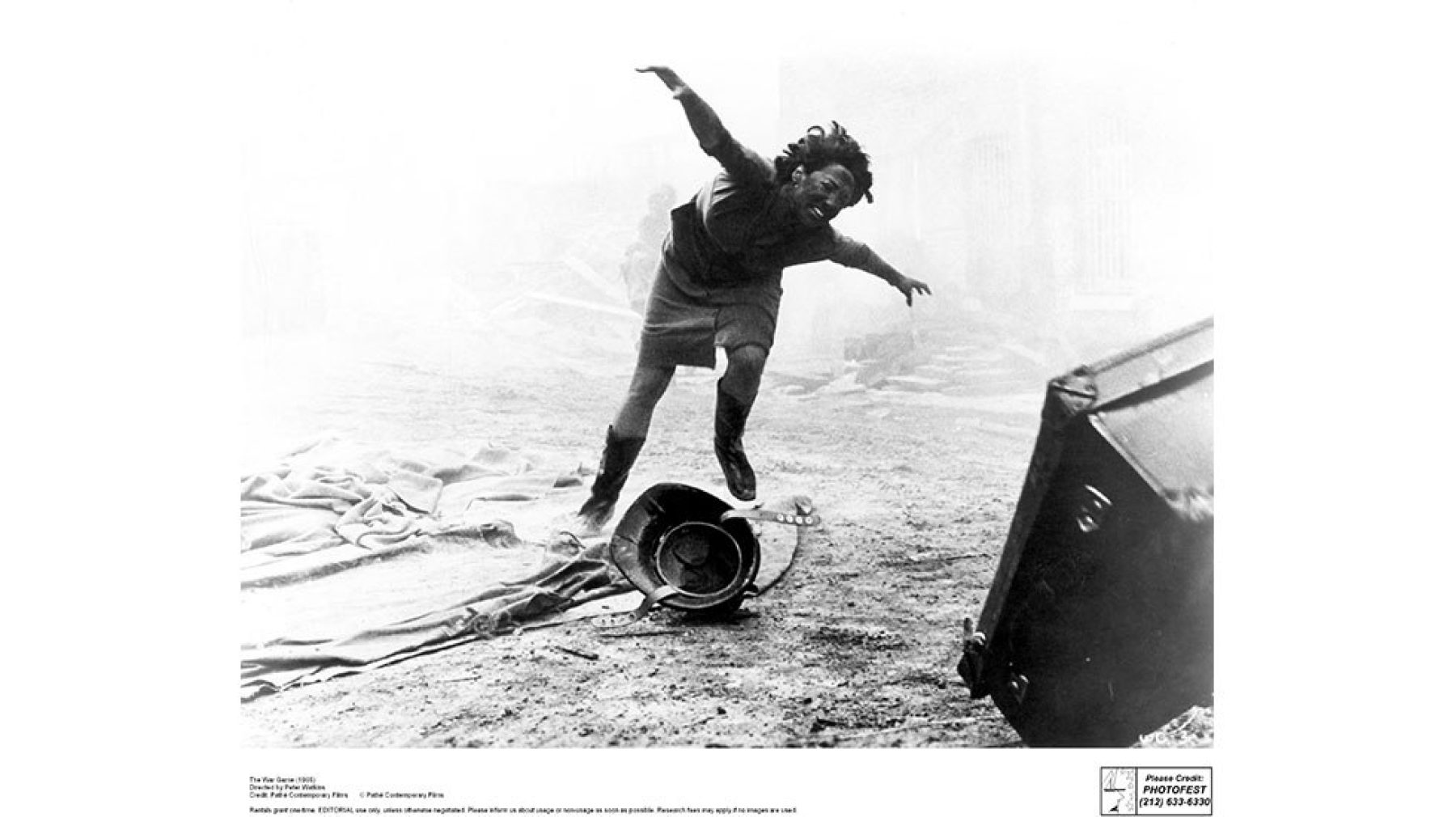
The War Game, directed by Peter Watkins UK 1966, 16mm, b/w, 49 min.
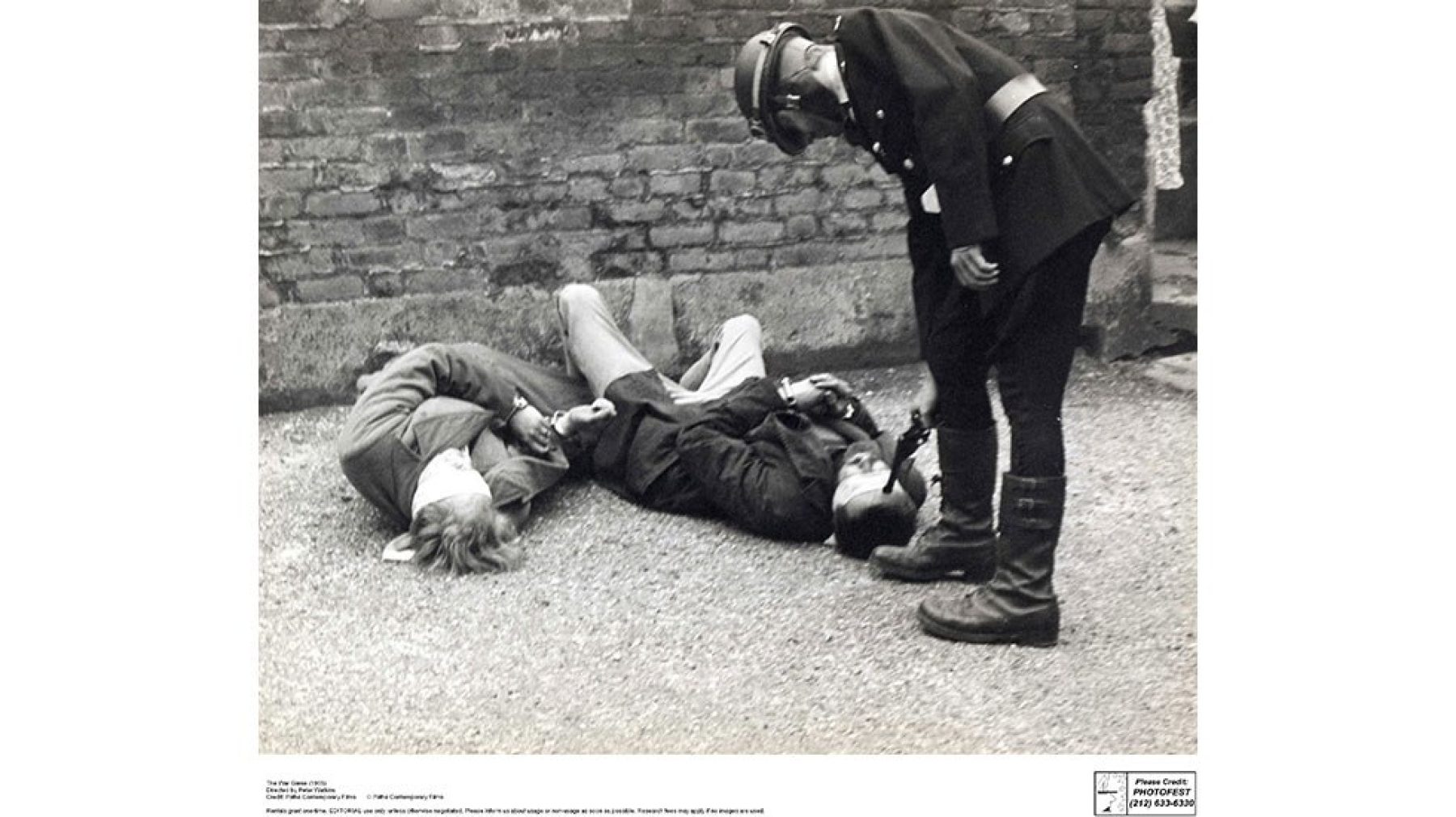
The War Game, directed by Peter Watkins UK 1966, 16mm, b/w, 49 min.
Archive
Explore more of our rich history through our archive.
